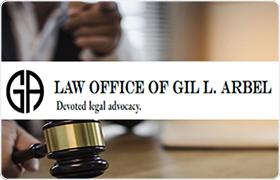Canyon Country White Collar Crime Lawyer, California
Sponsored Law Firm
-
 x
x

Click For More Info:
-
Law Office of Gil L. Arbel
28541 Conejo View Dr. Agoura Hills, CA 91301» view mapCriminal Defense Law Devoted Legal Advocacy
At the Law Offices of Gil L. Arbel, we understand that legal matters can be intimidating and complicated, which is why it is crucial to take an informed approach.
800-961-3980
Gina Tennen
✓ VERIFIEDCriminal, Military, Juvenile Law, White Collar Crime, RICO Act
LibertyBell Law Group consists of a group of elite criminal defense attorneys who have become some of the most sought after lawyers in the nation. Our... (more)
Gregory Nicolaysen
Health Care Other, Health Care, White Collar Crime, Criminal
Status: In Good Standing Licensed: 43 Years
David Lorenzo Fleck
Commercial Real Estate, Litigation, White Collar Crime, Criminal
Status: In Good Standing Licensed: 27 Years
Oren Rosenthal
Litigation, White Collar Crime, Civil Rights, Personal Injury
Status: In Good Standing Licensed: 18 Years
Michael M. Levin
Criminal, DUI-DWI, Felony, White Collar Crime, Misdemeanor
Status: In Good Standing Licensed: 29 Years
FREE CONSULTATION
CONTACTFrederick Matthew Goldberg
Juvenile Law, Traffic, Domestic Violence & Neglect, White Collar Crime
Status: Inactive
 Gil L. Arbel Agoura Hills, CA
Gil L. Arbel Agoura Hills, CA Practice AreasExpertise
Practice AreasExpertise

